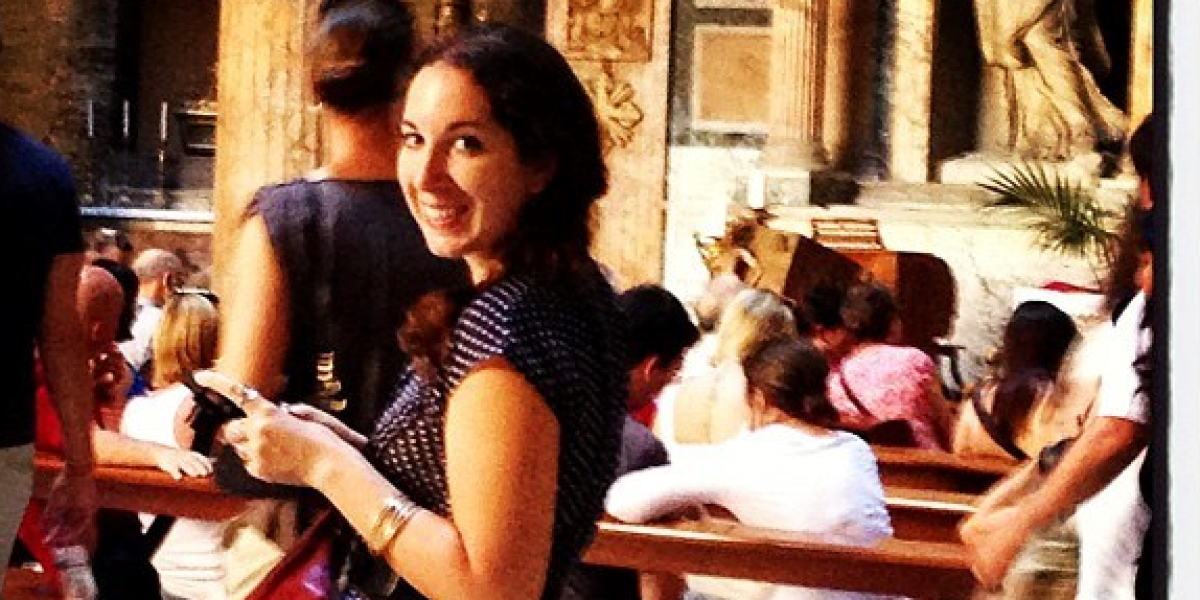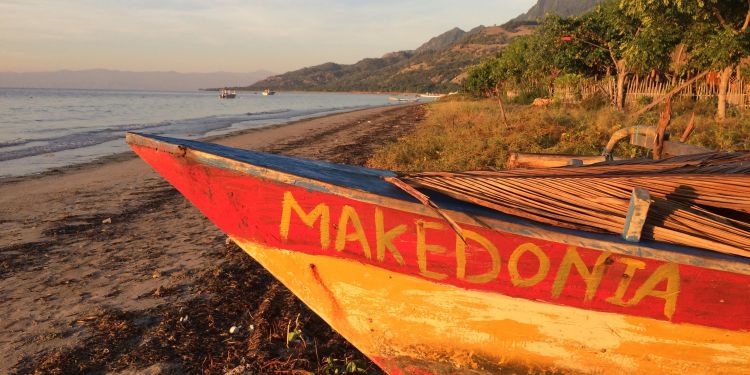
Xian, an Australian-Chinese-Filipina, amateur photographer, badminton player, and swimmer among others, moved to the island nation of Timor-Leste three and a half years ago to continue her wonderful work on gender equality and the prevention of violence against women. Xian has absolutely adapted to the unique style of island living, and shares with Expat.com some tips on making the most of your expat experience in Timor-Leste — spoiler alert: food and snorkelling included.
Hi Xian, please introduce yourself. Where are you from, what are you doing in Timor-Leste, and what were you doing before you arrived?
I'm Australian, but was born in the Philippines, grew up in China, and now I'm in Timor-Leste. I am working on gender equality and the prevention of violence against women and children for an Australian-based organisation called The Equality Institute. Before coming here, I was working on similar issues with the UN in Bangkok, followed by a few months in Colombia learning Spanish and dancing salsa.
What brought you to Timor-Leste? How long have you been in the country?
I originally came to Timor-Leste for a job, and I've been here for three and a half years so far.
What is the process of moving to Timor-Leste?
The job I came here with organised my whole move, so it was pretty painless. You can only fly to Timor-Leste from Singapore, Bali, or Darwin, so that limits your options of how to get here. My shipments from Colombia and Thailand arrived after about two months, but I had to be proactive about getting them out of the Dili port.
What is your favourite thing about the island, and what is your least favourite thing?
My favourite thing is how down-to-earth life is here – no mass consumerism, no skyscrapers, just coconuts straight off the tree and beautiful snorkelling right off the shore. My least favourite thing is getting stuck behind a taxi that's driving slowly when I'm running late for a meeting.

How would you describe Timor-Leste in one sentence?
An unspoiled, chilled-out, and quirky island nation with some of the most biodiverse underwater life in the world.
What has surprised you the most about Timor-Leste?
The unstoppable resilience of the Timorese people.
How is the job market in Timor-Leste?
The private sector is budding. Most jobs are in the development sector, government, or language-teaching (English and Portuguese). Once you're here and know people, it's easier to find more opportunities.
How easy or difficult it is to find accommodation in Timor-Leste, and what type of accommodation is available for expats?
It's not too hard to find accommodation in Timor-Leste but you need to do it yourself – there aren't real estate agents to help. Luckily, there are several very active Facebook pages where accommodation is regularly advertised. Most expats live in standalone houses; some live in gated communities, which tend to be more comfortable but significantly more expensive, and some in local homes. As long as you're okay with occasional power outages, the latter is a much more affordable option. Due to the regular flow of international volunteers, staying in a share house is also an option.

What are the biggest holidays in Timor-Leste?
As a majority Catholic country, apart from Christmas and Easter, the year is filled with a variety of religious holidays.
What is some essential etiquette in Timor-Leste?
If you visit someone's house and they offer you coffee, say yes!
How do you find the lifestyle in Timor-Leste?
Having always lived in large cities, moving to Dili – a city of about 100,000 people – was quite an adjustment. But now I appreciate being able to get from one end of town to the other in 20 minutes and bumping into people I know every day. It's not for everyone, though. As almost all goods are shipped in, the supply can be irregular sometimes. If you can survive for a week without your favourite brand of milk, then you'll be fine.
How is the transportation system in Timor-Leste? How do you move around?
Most foreigners buy cars or motorbikes/scooters. During the daytime, there's a system of small vans, called mikrolets that run on set routes throughout the town. Taxis are also an option, but they also primarily run during the day. Blue taxis tend to be safer and more reliable than yellow ones.
How is everyday life for you in Timor-Leste?
I work out of a home office, so I usually start with some yoga in the living room before settling down in front of the laptop with a mug of Timorese coffee to start the workday. Some afternoons – particularly if the power goes out at my house – I choose one of the cafes to work from. My partner and I are trying to get better at cooking at home but most nights we head out for dinner.

Do you feel that you have adapted to your new life?
Yes, definitely.
What do you do in your free time?
I play badminton three times a week with a group of friends. Sometimes, I head to the one cinema for a film. On weekends, I enjoy going to the beach for a long, lazy brunch with a book. On longer weekends, I like to get out of town and head to the districts.

Are there activities for people who enjoy nightlife?
The variety of nightlife options has fluctuated a lot in the three and a half years that I've been here. There were more options when I first arrived than there are currently, but I expect that will change again soon. There's a regular Friday night rooftop happy-hour that's very popular, and a handful of bars, some with dancefloors. Karaoke is also a favourite pastime here. With the turnover of people, there's always a healthy supply of housewarmings and farewells to go to as well.
What new habits have you developed in Timor-Leste?
Badminton. When my neighbour invited me to join, I hadn't played since high school. But now, a year later, I'm hooked.
And what old habits have you quit?
Swimming laps. I miss it hugely but, unless you live in a fancy compound, lap pools are hard to come by and very expensive. Hence, all the badminton now.

What is your opinion on the cost of living in Timor-Leste?
As Timor-Leste uses the US dollar, it's a lot more expensive than other countries in Asia. A trip on a mikrolet is 25 cents; a can of beer is $1.25 in a kiosk but $3 or $4 in a restaurant; a loaf of bread in a supermarket is around $2. While you can eat in a small local restaurant for a couple of dollars, a dinner at a foreign restaurant with wine can easily cost $60 for two people. Some costs, like cars, are more inflated than others, as there aren't many new vehicles regularly entering the market.
What is something that you would like to do in Timor-Leste but haven't had the opportunity to do yet?
A nighttime dive.
Share your most memorable experience in Timor-Leste.
Seeing a blue whale surface just next to our boat. Whales migrate past Timor every year and, every year, I've gone on whale-watching trips to try to see one. Finally, on my birthday last year, three blue whales went past us on our way back from Atauro (a small island across from Dili). It was truly magical.

If you could do the move to Timor-Leste all over, what would you do differently?
I would have packed less. A lot of what I shipped over, I probably didn't need.
What do you think of the local cuisine? What are your favourite dishes?
A lot of food in Timor-Leste is influenced by Portugal and Indonesia, but there's a recent movement of some entrepreneurs trying to bring back an appreciation for local dishes with local ingredients. I love Timorese seaweed salad, which is salty and spicy, and also fried fern tips with garlic and lime.
What do you miss the most about your home country?
Good Chinese food.
Have you had a moment where you almost felt like leaving Timor-Leste? How did you overcome that? What kept you there?
Yes, my first few months were difficult – as it can be anywhere. I had a good contract though and was working with a wonderful team, so that kept me going. Life was also a lot easier after I bought a car and was able to move around freely.
Can you give some useful tips that soon-to-be expatriates in Timor-Leste might benefit from?
Medical care options are limited here so make sure to get all of your vaccinations and good health insurance before coming. There are a few expat clinics and some good local clinics but, generally, for anything serious or complicated, you will probably want to fly to Darwin, Bali, or Singapore. You rarely see dollar bills larger than $20 in circulation here so many places may not accept $50s or $100s. Also, when you arrive, you'll need US$30 in cash to pay for the visa on arrival at the airport as there are no ATMs before you leave customs.
What are your plans for the future?
For now, I plan to stay here. I enjoy living here. And the coffee is just so good!
What is one thing that you will take with you from Timor-Leste?
My partner.



















